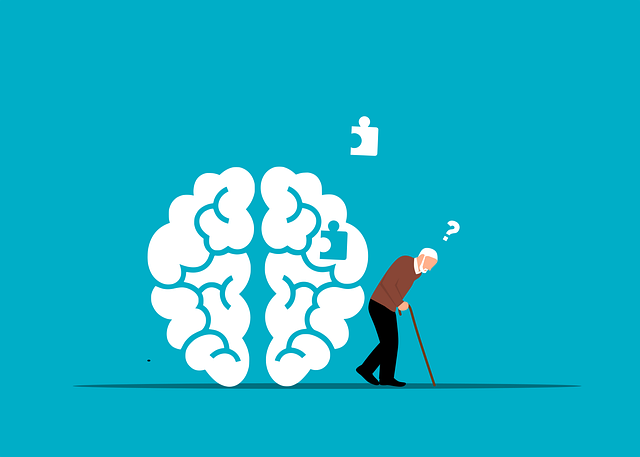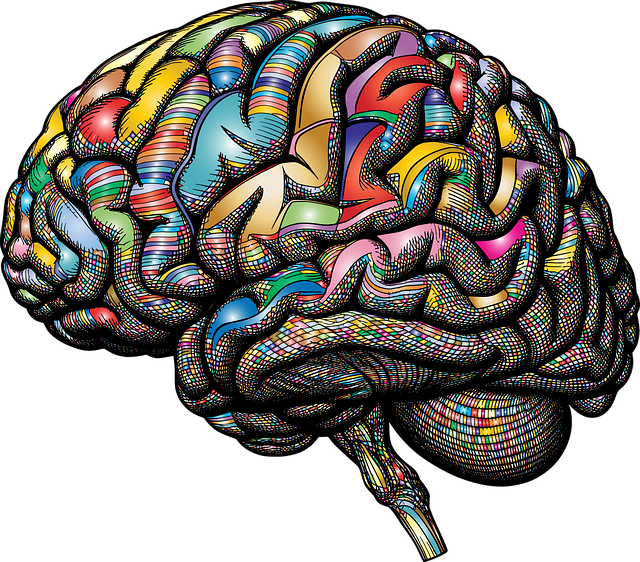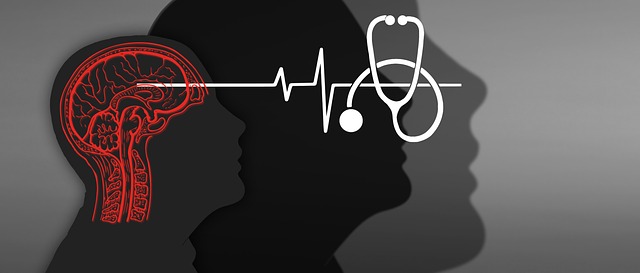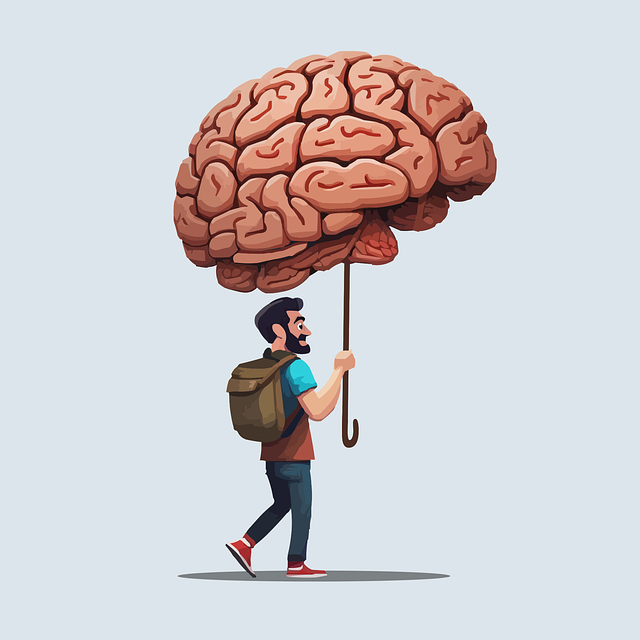Mental illness representation in media is crucial for public understanding and empathy, but current portrayals often perpetuate stereotypes and misinformation, leading to stigmatization. Accurate, nuanced narratives that go beyond plot devices or character traits are needed to foster communication about mental health issues. Incorporating stories of self-care, resilience, and effective therapy for adults and couples can offer valuable insights, while community outreach programs within these narratives contribute to an informed media landscape. In the digital age, online platforms provide opportunities for therapy by facilitating open communication, and technology enhances risk assessment and cultural competency training for healthcare providers. Effective representation by media professionals and advocates is key to challenging societal perceptions and advocating for better access to therapy for adults and couples with communication issues.
In today’s media landscape, accurate representation of mental illness is paramount. This article delves into the current state of mental health portrayal in media, exploring both the damaging effects of stereotypes and misinformation and the transformative power of authentic narratives. We discuss strategies to promote precise depictions, focusing on the vital role of media professionals and mental health advocates. Furthermore, we highlight therapy for adults and couples as a crucial tool for addressing communication issues exacerbated by media portrayals, offering effective communication strategies for all involved.
- Understanding Mental Illness Representation in Media: The Current State
- Impact of Stereotypes and Misinformation on Public Perception
- Promoting Accurate Portrayals: Challenges and Opportunities
- Therapy for Adults and Couples: Addressing Communication Issues through Media
- Effective Communication Strategies for Media Professionals and Mental Health Advocates
Understanding Mental Illness Representation in Media: The Current State

Mental illness representation in media has been a topic of increasing interest and concern. The current state of portrayal often falls short, perpetuating stereotypes and misinformed narratives that can negatively impact public understanding. Media platforms, including television, film, and social media, play a significant role in shaping societal perceptions about mental health issues. As such, accurate and nuanced representations are crucial for fostering empathy, reducing stigma, and encouraging those affected to seek help.
The challenge lies in presenting mental illness as more than just a plot device or background character trait. It requires deep exploration of the experiences, complexities, and diverse presentations of various disorders. Incorporating stories that highlight self-care practices, resilience building, and effective therapy for adults and couples can offer valuable insights into navigating communication issues related to mental health. Community outreach program implementations within these narratives further contribute to a more inclusive and informed media landscape.
Impact of Stereotypes and Misinformation on Public Perception

The media plays a significant role in shaping public perceptions about mental illness, often influencing how individuals understand and respond to conditions like depression, anxiety, or bipolar disorder. Unfortunately, stereotypes and misinformation prevalent in various forms of media can lead to stigmatization and further isolate those struggling with their mental health. When media portrayals reduce complex disorders to simplistic narratives or perpetuate harmful tropes, it hinders the public’s ability to empathize and understand the lived experiences of individuals living with these conditions.
This issue is particularly detrimental for audiences who may be experiencing similar challenges, as they might inadvertently internalize these negative representations, impacting their self-perception and willingness to seek help. For instance, a lack of nuanced portrayal could discourage people from pursuing therapy for adults or couples facing communication issues rooted in mental health struggles. Thus, fostering accurate and empathetic media representation is crucial in promoting mental health education programs design that encourages self-awareness exercises and fosters cultural competency among healthcare providers.
Promoting Accurate Portrayals: Challenges and Opportunities

Media plays a powerful role in shaping societal perceptions and understanding of mental illness. However, accurate representation has often been a challenge, leading to misconceptions and stigmatization. The current narrative in media often relies on stereotypes or sensationalism, which can be detrimental to individuals struggling with mental health issues. To promote change, there is a pressing need for more nuanced and authentic portrayals that reflect the diverse experiences of those affected.
Creating accurate representations offers both challenges and opportunities. On one hand, it requires careful consideration of symptoms, treatment approaches, and individual journeys. Involving people with lived experiences in the creative process can ensure authenticity. On the other hand, this shift empowers media to foster empathy and understanding, encouraging viewers to engage in open conversations about mental health. By incorporating communication strategies and showcasing the importance of self-care routine development for better mental health, media platforms can contribute to a more supportive societal environment, ultimately benefiting those seeking therapy for adults and couples with communication issues.
Therapy for Adults and Couples: Addressing Communication Issues through Media

In today’s digital age, media plays a significant role in shaping public perception of mental health. When it comes to therapy for adults and couples, online platforms offer unique opportunities for addressing communication issues. Many individuals seeking mental health support now turn to virtual therapy sessions, which can facilitate open dialogue and provide a safe space for vulnerable conversations. This shift towards digital therapy allows professionals to engage with clients from diverse backgrounds, offering tailored support that bridges cultural gaps.
Effective communication is key in successful therapy. By leveraging media tools and platforms, therapists can enhance their mental health education programs design and incorporate innovative techniques. For instance, video conferencing enables face-to-face interactions without geographical barriers, while online resources like interactive forums and digital workbooks foster engagement and encourage clients to actively participate in their healing process. Additionally, integrating technology into therapy sessions can improve risk assessment for mental health professionals by providing real-time data and enabling early identification of potential issues, thereby enhancing the overall effectiveness of healthcare provider cultural competency training.
Effective Communication Strategies for Media Professionals and Mental Health Advocates

Media professionals and mental health advocates play a pivotal role in shaping public understanding of mental illness. Effective communication strategies are essential to ensure accurate and sensitive representation. This includes clear, non-stigmatizing language that explains complex mental health conditions in terms that are accessible to diverse audiences. By employing simple, direct communication and avoiding insensitive stereotypes or cliches, media outlets can foster a more inclusive environment.
Additionally, promoting open dialogue through interviews with mental health experts and individuals living with these conditions can offer valuable insights. This approach not only enhances anxiety relief and stress management but also encourages viewers to seek support if needed. Incorporating personal stories alongside professional advice underscores the importance of mental health advocates as powerful tools in challenging societal perceptions and advocating for better access to therapy for adults and couples.
Mental illness representation in media is a complex challenge, but by promoting accurate portrayals and adopting effective communication strategies, we can significantly improve public perception. Understanding the impact of stereotypes and misinformation is crucial, and therapy for adults and couples can play a vital role in addressing communication issues that arise from media depictions. Through collaborative efforts between media professionals and mental health advocates, we can foster a more empathetic and informed society, ensuring that discussions around mental health are both nuanced and constructive.









